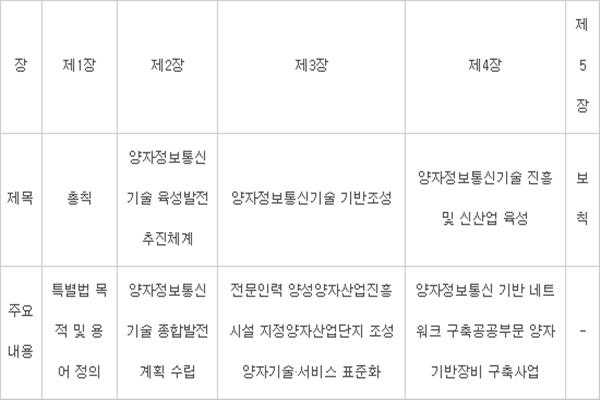South Korea’s National Assembly has decided to focus on promoting its quantum industry. Not only is it going to improve competitive edge in quantum cryptography communication technology but it is going to make South Korea as a powerhouse in quantum industry by creating an industrial ecosystem and preparing base for continual growth.
Lee Eun-kwon, who is the member of National Assembly (Saenuri Party) made establishment of ‘development of quantum information communication technology and promotion of industrialization’ bill that is for supporting of quantum industry official at a seminar called ‘Launching of South Korea Based on Quantum Technologies’, which was held at National Assembly on the 12th.
“While many countries such as the U.S., China, and Japan are making investments into quantum industries, South Koreans also believe that full support through a special law is needed for its quantum industry.” said Lee Eun-kwon. “I am planning to be the representative of this special bill.”
Quantum industry is an industry that utilizes technologies that save, search, send, and process information based on quantum mechanics. Its ability for fast calculation and excellent security are its characteristics.
Because quantum industry can be applied to variety of industries such as quantum sensor and quantum components, it is considered as a ‘blue ocean’ in ICT (Information Communication Technology) field.
This special bill, which is composed of 5 chapters and 4 provisions, includes promotion system for quantum information communication technologies, formation of bases, and promotion of new industries.
“This bill will be proposed in order to establish promotion system of quantum industries such as quantum computer and quantum applied measurement and element and quantum information communication.” said Lee Eun-kwon. “It will be promoted as a major new industry of 4th industrial revolution through promotion of professionals, formation of promotion facilities for quantum industries, and establishment of network of international cooperation.”
It is expected that comprehensive support and acceleration of development of technologies for quantum industries will be possible through establishment of this special bill. South Korea is only the 17th place in ranking for amount of yearly budget for research in quantum field and its technical skills in quantum field fall 5 to 8 years behind compared to advanced countries.
“There is a saying that having or not having quantum technologies will be like having or not having nuclear weapons.” said Lee Eun-kwon. “It is important to secure growth for new industries such as quantum information communication in order to recover competitive edge in ICT industry.”
Although establishment of a special bill for quantum industry was attempted many times after 2013, they did not pass eventually. South Korean Government realized the importance of quantum industries such as quantum information communication and put out variety of policies such as designation of quantum industry as 10 major IT technologies, designation of quantum industry as 10 promising technologies in the future, establishment of K-ICT strategy in 2016, and establishment of medium and long-term strategies for quantum information communication.
Staff Reporter Kim, Yongjoo | kyj@etnews.com
